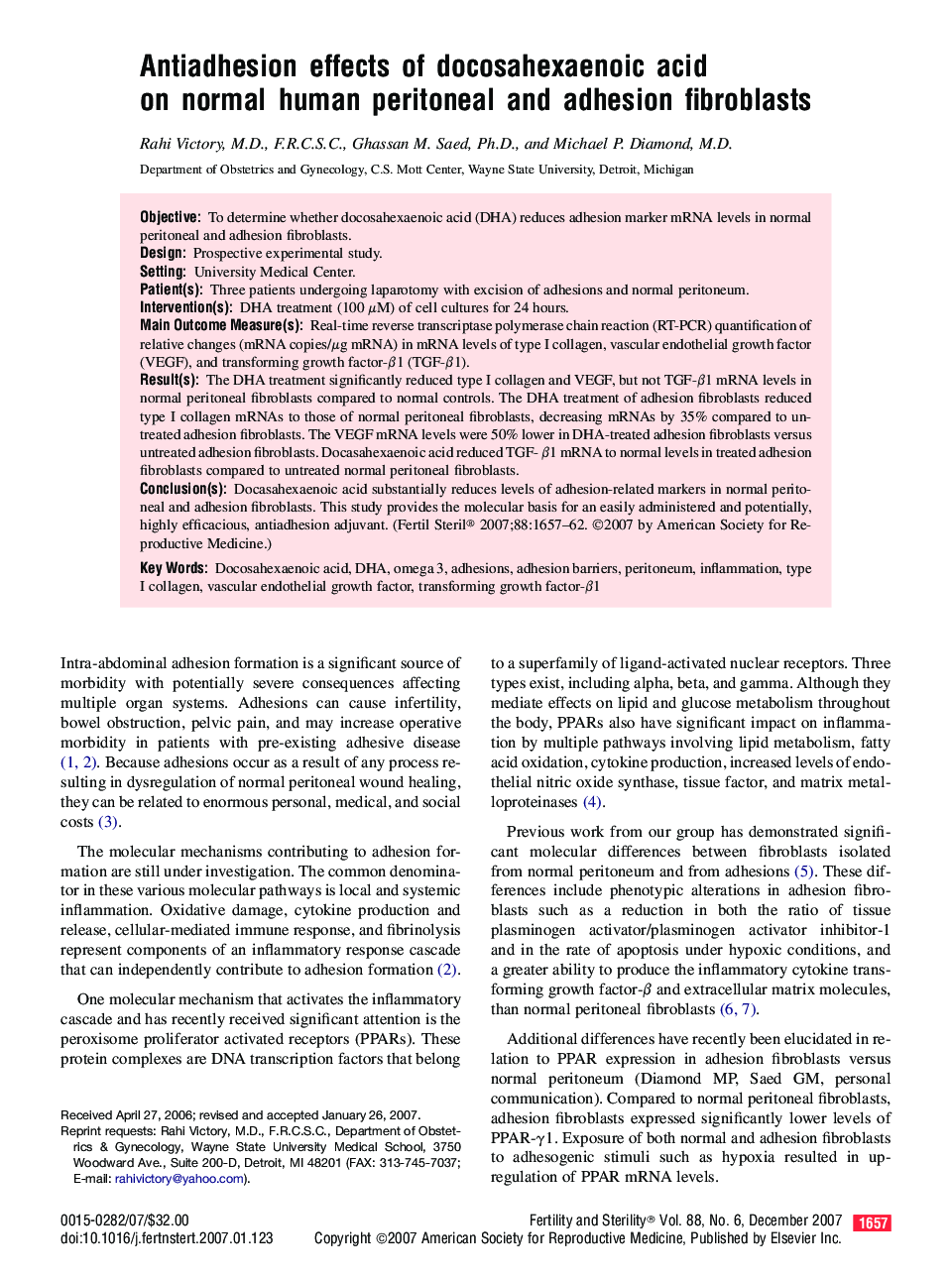| Article ID | Journal | Published Year | Pages | File Type |
|---|---|---|---|---|
| 3935253 | Fertility and Sterility | 2007 | 6 Pages |
ObjectiveTo determine whether docosahexaenoic acid (DHA) reduces adhesion marker mRNA levels in normal peritoneal and adhesion fibroblasts.DesignProspective experimental study.SettingUniversity Medical Center.Patient(s)Three patients undergoing laparotomy with excision of adhesions and normal peritoneum.Intervention(s)DHA treatment (100 μM) of cell cultures for 24 hours.Main Outcome Measure(s)Real-time reverse transcriptase polymerase chain reaction (RT-PCR) quantification of relative changes (mRNA copies/μg mRNA) in mRNA levels of type I collagen, vascular endothelial growth factor (VEGF), and transforming growth factor-β1 (TGF-β1).Result(s)The DHA treatment significantly reduced type I collagen and VEGF, but not TGF-β1 mRNA levels in normal peritoneal fibroblasts compared to normal controls. The DHA treatment of adhesion fibroblasts reduced type I collagen mRNAs to those of normal peritoneal fibroblasts, decreasing mRNAs by 35% compared to untreated adhesion fibroblasts. The VEGF mRNA levels were 50% lower in DHA-treated adhesion fibroblasts versus untreated adhesion fibroblasts. Docasahexaenoic acid reduced TGF- β1 mRNA to normal levels in treated adhesion fibroblasts compared to untreated normal peritoneal fibroblasts.Conclusion(s)Docasahexaenoic acid substantially reduces levels of adhesion-related markers in normal peritoneal and adhesion fibroblasts. This study provides the molecular basis for an easily administered and potentially, highly efficacious, antiadhesion adjuvant.
